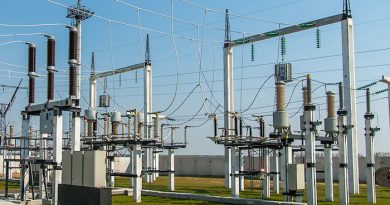What Newbies Need To Know About Investment Property Financing
Basics for Financing for an Investment Property
You have big dreams of owning real estate and retiring young. You simply don’t have the funds to go out and buy the properties in cash (most of us don’t either). This leads you down the path of financing with your local bank. Maybe you already own your own home and have been through the process of getting approved and signing the mortgage. This should be easy then right? Wrong, investment property loans are not like your traditional home loan.
Lenders are more strict with underwriting an investment property than that of a personal home mortgage. You might be wondering, but why? It’s simple when you own investment property and a personal residence and then you lose your job or things start going south financially you’re going to pay your personal mortgage before anything else in a worst case scenario. You’re not going to want to default on your mortgage, because that’s where you live!
Interest Rate
The interest rate is going to be higher than that of your home mortgage, it just is. Add 1-3 percentage points more than the owner occupied loan rate. That means that if a lender charges 4.00% interest for homeowner loans, you’ll likely pay 5-7% interest for investment loans. That’s just how it works folks. The loans are more risky, so the banks want more for them.
Credit Score
As with any type of loan your credit matters. It shows the bank a history of your previous credit experiences and basically says why you should get a loan or why you shouldn’t get a loan. Working to make sure your credit is top notch is something you need to do far before you get into the real estate game.
With investment property your credit score does not have as big as impact as it does with home mortgages. You will still have options if your credit isn’t perfect. If you score is below 740 you should expect to pay more in interest rate, lender fees, and lower LTV’s. This doesn’t mean you shouldn’t invest with a lower than 740 credit score, it just is stating what you need to expect.
Lower LTV
20% learn it, love it, live it. That’s the number the bank will want from you as a down payment for your investment property purchase. There are of course exceptions to the 20% down, however that’s what most banks are requiring.
20% is a lot of money, right? Yeah I know, but the good news is you will not have to pay mortgage insurance! Nobody likes mortgage insurance. The bad news is, that’s the only good news. Also the 20% down is best case, if you have piss poor credit expect the bank to expect more or not even look at your deal at all. As a final note, plan on needing at least three months’ payments as a liquid cash reserve. Cash reserve is important, yes you may finally have saved that 20%, but if you don’t have more than the 20% in working capital for when the furnace goes out in the first month then the bank will again question giving you a loan.
House Hacking to Get Started
The idea behind house hacking is simply to decrease or minimize your own expenses and use the spread (money you are saving) to invest into acquiring properties to rent out. Living in a nice house with an indoor swimming pool and movie room is great and all, but that house isn’t making you monthly cash flow, it’s costing you monthly cash flow.
The basic idea behind this “house hacking” mentality is to simply rent out part of your home to another person, or co-exist with another person as a roommate in your own home. Also it can mean selling your primary residence now and buying a multifamily property and living in one of the units while renting out the rest. Basically when it is all said and done you are renting what you already live in, to decrease your monthly expense to save capital for your dreams of real estate glory!
If you have yet to buy your first home, or if you want to sell your home now to get into real estate a multi unit property might be the right fit for you. By buying a multifamily home you can live in one of the units and have your tenants pay all of your expenses this is generally more appealing to most people than having someone live in their home.
For example, if you buy a 4 unit, live in one unit, and rent each of the other units out for $$600 a month, that would mean you’re making $1800/month in rents. If your loan, escrow (taxes + insurance) utilities, and other expenses come to just $1600 – you could get paid $200/month just to live in the home. Even better when it comes time to move out into your future home, you can rent that 4th unit out for even more income. Sounds like a great idea right?
Key Takeaway:
Investment properties have higher interest rates
Lenders are slightly more lenient on credit score
You’re going to need 20% for down payment (exceptions do happen)
Try house hacking to get started into real estate
—
America’s Favorite,
The Small Time Investor
Source by Ryan Curtis


